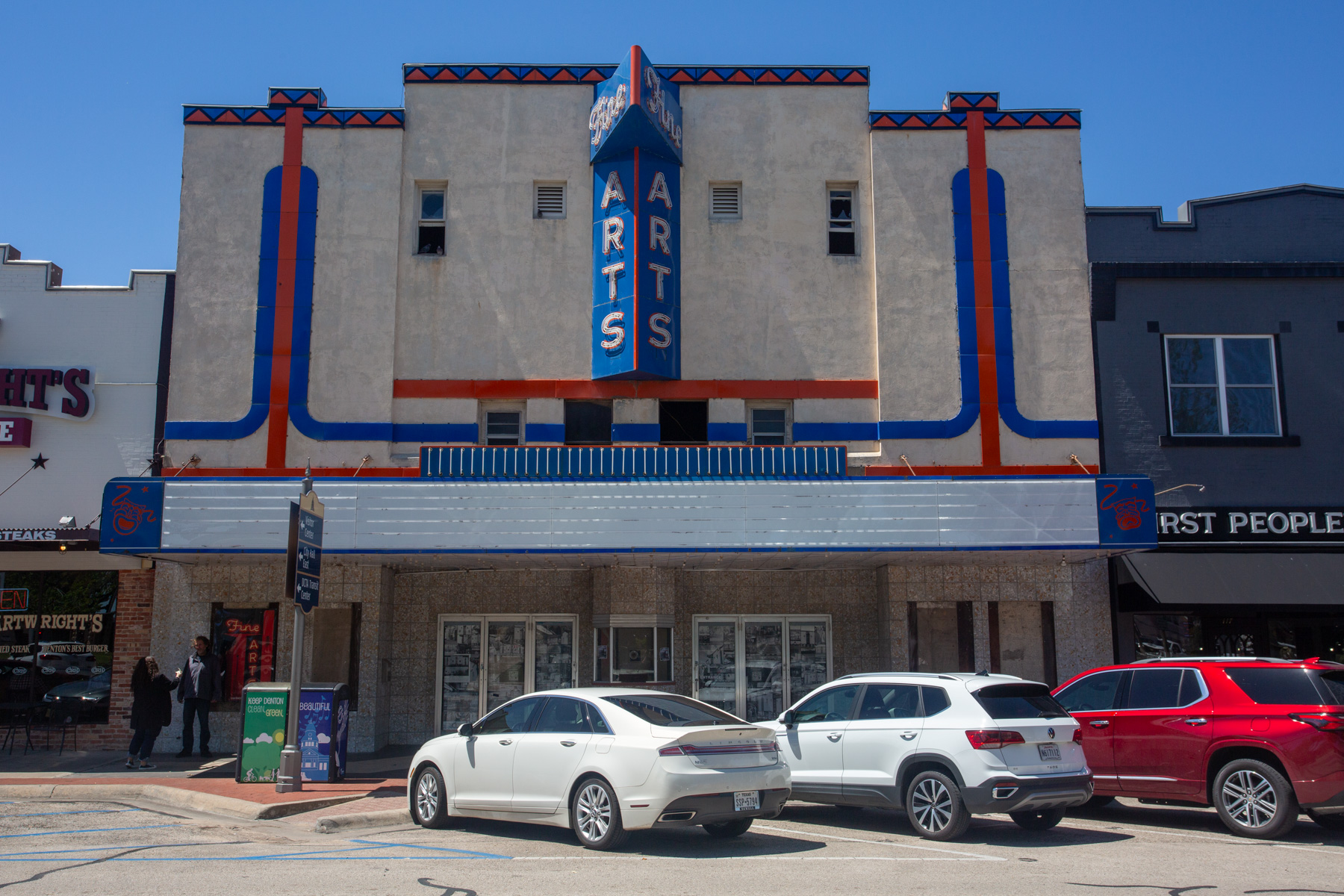In 1935, the Texas Theater took the place of a furniture store in what is now the heart of downtown Denton. At that time, the city’s town square was characterized by a two-story brick courthouse, a line of storefronts, and little else. The theater’s construction actually predates the city’s current courthouse by five years and underwent a rebranding in 1957, becoming known as the Fine Arts Theatre.
Following its closure in 1981 and a subsequent fire the following year, the building has remained largely vacant while Denton’s downtown square blossomed around it with the addition of shops, restaurants, and bars. It has only seen sporadic use for church services or gatherings, leaving a significant piece of the city’s history abandoned for more than four decades. Recently, the Denton City Council authorized $1.6 million in tax incentives to revitalize the theater, reviving a redevelopment initiative from 2018 that faltered due to the substantial costs associated with refurbishing the space.
Assistant City Manager Christine Taylor describes the Fine Arts Theater as a cultural and iconic landmark that often surfaces in searches related to Denton. However, it currently contributes minimally to the city’s tax revenue and remains inactive.
One of the individuals involved in the theater’s revival, Jason Reimer, has prior experience with a similar project in Dallas, where he was instrumental in transforming the derelict Texas Theatre into a thriving cultural hub. Denton-based NorthBridge Realty Holdings acquired the Fine Arts property in 2018 and enlisted Reimer to oversee its programming and operations. Despite the building’s poor condition, financial viability only became feasible after the City Council offered tax incentives.
Plans for the revitalized theater include a 200-seat main auditorium, a 30-seat mezzanine on the second floor, and a 50-seat private theater, complemented by a second-floor bar overlooking the town square. Reimer will manage the operations and contribute to the redesign, while his partner Barak Epstein will provide technical expertise for the project.
The careful selection of NorthBridge as the buyer aligns with the original owners’ vision of preserving the building’s heritage. The theater now falls within a Tax Increment Reinvestment Zone (TIRZ), enabling developers to receive tax breaks under specific conditions. To qualify for these incentives, NorthBridge must secure a minimum of $5.8 million from sources outside the city.
Council Member Brian Beck emphasizes the significance of preserving iconic structures that reflect the city’s identity and values. The renovation project not only serves as an economic driver but also contributes to architectural conservation. Reimer underscores the importance of maintaining the building’s historical integrity while making necessary repairs, aiming to retain its distinctive Southwestern architectural style.
The project’s roots in Denton’s history are deeply ingrained, with local artist Martin Iles contributing to the early research efforts. Leveraging his expertise from previous ventures, Reimer envisions the Fine Arts Theater as a versatile venue for film screenings, concerts, and social gatherings akin to the successful model implemented at the Texas Theatre in Oak Cliff.
The revitalization project is expected to have a ripple effect on the surrounding businesses, with projections estimating a significant boost in annual revenue for neighboring establishments. Through collaborative efforts with underwriters, the city has devised an incentive structure that benefits Denton while incentivizing the building’s owners and operators.
With construction anticipated to span 12 to 15 months, Reimer and Andrus aim to unveil the operational Fine Arts Theater by the summer of 2025. This long-awaited transformation reflects a steadfast commitment to preserving cultural heritage and fostering community engagement, marking a significant milestone for Denton’s historical landscape.
